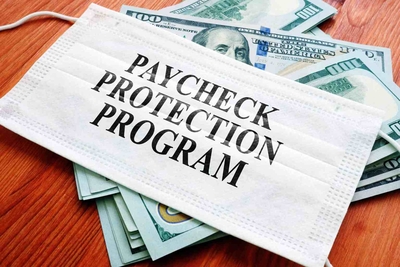REPUBLICANS AND conservatives are tingling in anticipation of a big victory next month on Proposition 226, California's "paycheck protection" intiative. The proposed law would prohibit labor unions from spending any part of a member's dues on political activities unless that member first consents in writing. Unions, accustomed to absolute control over employees' dues, have declared all-out war. The attack ads are already polluting California's airwaves, but every opinion poll shows that voters strongly endorse Proposition 226, and it seems certain to pass on June 2.

California is only the biggest of the paycheck-protection battlegrounds. Similar measures are before the legislature or headed for the ballot in at least a dozen other states. In four states, paycheck protection is already on the books. The impact can be staggering. When Washington state voters adopted paycheck protection in 1992, 48,000 teachers were "contributing" to their union's political fund. Within months of the new law's passage, the number of donors dropped to 8,000.
The attractiveness of paycheck protection is easy to comprehend. Most adults can decide for themselves which political causes and candidates to support; they don't need their union to make the choice for them, thank you very much. The fact that union PACs lopsidedly support Democrats is especially galling, inasmuch as 40 percent of union households vote Republican. In 1995-96, seven of the top 10 contributors to federal campaigns were unions, and more than 95 percent of their largesse went to Democrats.
Union activism goes well beyond party politics. In California, members' dues have been used to promote abortion rights, to fight the Boy Scouts' policy on gays, and to campaign for drug legalization. Proposition 226 wouldn't forbid unions from throwing political punches, but it would ensure that the money to do so comes only from members who have given their approval.
Except that . . . it wouldn't.
Tell a union it may not spend workers' money on political activity without written permission and you merely invite it to recast those activities as nonpolitical. That devastating union setback in Washington? Look again: "No longer able to collect dues for political purposes without consent . . . the state teachers' union simply redefined its 'political' program as a 'Community Outreach Program,'" reports Michelle Malkin in the Seattle Times, "and — voila! — $924,000 in political contributions began pouring into its coffers."
Legislation like Proposition 226 is an invitation to endless litigation. What is "political"? A brochure urging, "Vote for Blowhard"? Clearly. But what about a brochure that merely proclaims, "Blowhard is the workingman's friend"? Or that says, "Of the AFL-CIO's top 10 priorities, Blowhard voted for all 10"?
Besides: Why shouldn't a union be permitted to spend members' dues for political purposes? Since when do organizations have to get individual members' consent before spending some of their fees on politics (or anything else)? If you belong to the Humane Society or the American Association of Retired Persons or the Doris Day Fan Club, you aren't entitled to a veto on how your dues will be spent. Why should the rules be different if you belong to the Teamsters?
Because, paycheck protection advocates would say, the Supreme Court said so. Over and over, conservatives point to the 1988 case of Communication Workers of America v. Beck to prove that unions are illegally misusing their members' dues. But over and over, conservatives get Beck wrong.
My elder brother pundit William Safire, for example, notes in The New York Times that in Beck the court held that "union members have the right to claim refunds of portions of their dues not spent on collective bargaining." The Wall Street Journal editorializes that Beck "said that union members are entitled to stop union leaders from using other people's money, namely their dues, for politics with which they disagree." The savvy Republican strategist Grover Norquist, a prime mover behind paycheck protection, writes that Beck "specifically forbids the use of compulsory union dues for purposes beyond the negotiation and maintenance of a member's contract."
But that isn't what the court ruled. Beck deals only with the rights of workers who are not union members — employees in a unionized workplace who decline to join the union but are forced to pay dues anyway as a condition of keeping their job. It is they, the justices said, who may not be compelled to pay one penny more than the amount needed for collective bargaining. Unfortunately, most workers in union shops don't realize that they have the right to quit the union and pay less than full dues. But that is a minor problem next to the fact that federal law allows unions to coerce dues out of nonmembers (or unwilling members) in the first place.
Paycheck protection schemes like Proposition 226 are short-run fixes at best. With tens of millions of dollars (and a vast amount of influence) at stake, unions will always be able to figure out a way to siphon their members' money into politics.
If Republicans really want to protect paychecks, let them enact a national right-to-work law. No employee should have to pay money involuntarily to a union as a condition of holding a job. Proposition 226 is fine as far as it goes. But to focus on union politics instead of union extortion is to pay lavish attention to the trees and miss the forest entirely.
(Jeff Jacoby is a columnist for The Boston Globe).
-- ## --
Follow Jeff Jacoby on Twitter.
Discuss his columns on Facebook.
Want to read more? Sign up for "Arguable," Jeff Jacoby's free weekly email newsletter

